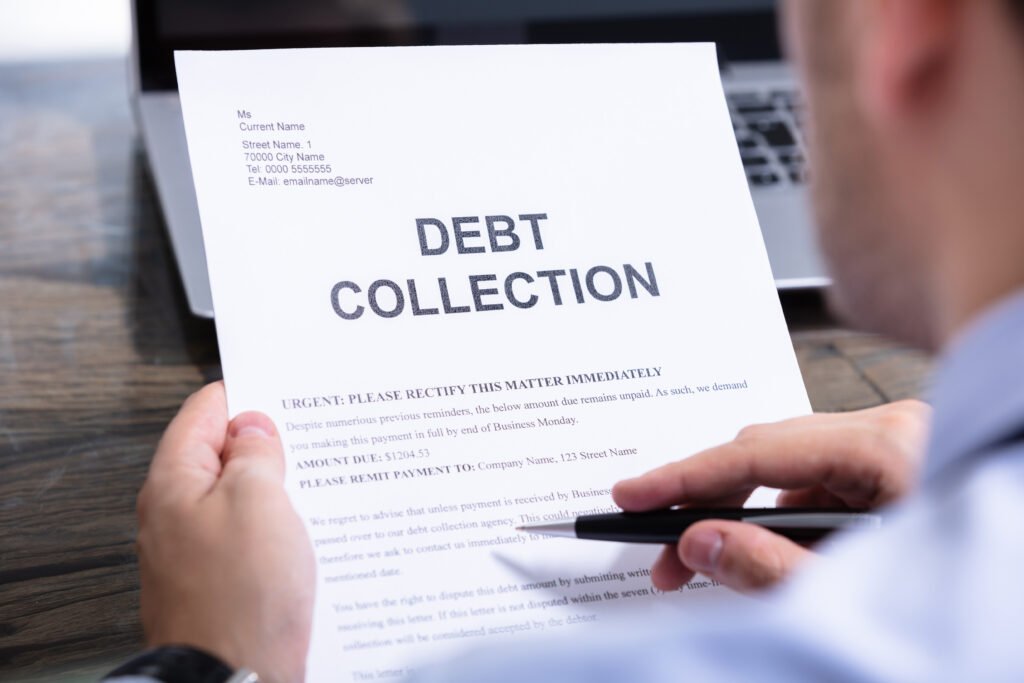Debt parking is a deceptive tactic that often catches consumers by surprise, leaving them struggling with unexpected financial obligations. In this article, we’ll break down what debt parking is, how it impacts consumers and the legal protections available.
We’ll also offer practical tips for handling situations involving parking fine debt collectors, helping you safeguard your financial well-being and avoid illegal debt schemes.
What is Debt Parking?
Debt parking happens when debt collectors report false or invalid debts to a consumer’s credit report without their knowledge. This practice typically forces individuals to face these debts at the worst possible times—such as during a loan application or job search when credit checks are common.
The goal of debt parking is to pressure consumers into paying debts they may not even owe, to avoid damage to their credit or the risk of missing out on financial opportunities. Debt parking is especially dangerous because it exploits consumers’ urgency to resolve credit issues quickly, even if the debt is inaccurate.
The Impact of Debt Parking on Consumers
Financial Consequences
Credit Damage: Lower credit scores may make it difficult to qualify for loans or favorable interest rates.
Lost Opportunities: Many people discover parked debt only when they are denied mortgages, car loans or even employment.
Emotional Impact
Dealing with unexpected debt adds stress and anxiety, especially when debt collectors threaten further legal action if the debt isn’t paid promptly. Consumers are often left with the dilemma of paying a debt they don’t owe or risking credit damage by disputing it.
Debt Parking Rules and Legal Protections
Debt parking is illegal under various consumer protection laws, including the Fair Credit Reporting Act (FCRA) and the Fair Debt Collection Practices Act (FDCPA). Here’s what these laws ensure:
FCRA: Requires accurate reporting of credit information and allows consumers to dispute false entries.
FDCPA: Bars debt collectors from using abusive or deceptive practices, such as reporting false debt without notifying the consumer first.
Recent cases, such as the FTC’s settlement with Midwest Recovery Systems, highlight the regulatory crackdown on these practices. Midwest was found to have parked more than $98 million in fake or unverifiable debt, damaging the credit scores of thousands of consumers. Legal action forced them to stop illegal collection practices and delete the fraudulent debt entries.
How to Detect and Dispute Debt Parking
Monitor Credit Reports Regularly
Get free reports from Equifax, Experian, and TransUnion at least quarterly, although you can get them as frequently as every week for free as well.
Validate the Debt Before Disputing It
If a debt collector contacts you about a debt, you have the right to request validation before taking any further steps. Within 30 days of initial contact, you can send a debt validation letter asking the collector to provide proof that the debt is legitimate and that they have the right to collect it. If the collector cannot validate the debt, they must stop collection efforts and remove any negative reporting from your credit report.
Dispute Suspicious Entries Immediately
If a debt collector cannot validate the debt or you notice an unfamiliar debt on your credit report, dispute it with the credit bureau and the creditor in writing.
Dispute Letter Example:
[Your Name]
[Your Address]
[City, State, ZIP Code]
[Your Email]
[Your Phone Number]
[Date]
[Credit Bureau Name]
[Credit Bureau Address]
[City, State, ZIP Code]
Subject: Dispute of Inaccurate Debt on My Credit Report
Dear [Credit Bureau],
I am writing to formally dispute an inaccurate debt entry on my credit report. The account in question is listed as [Account Name/Number] under [Creditor Name] and was reported on [Date]. I do not recognize this debt, and I believe it has been incorrectly placed on my report.
Under the Fair Credit Reporting Act (FCRA), I request an immediate investigation into this matter. Please provide me with documentation verifying the validity of this debt. If you cannot verify the accuracy of this information, I request that the account be removed from my credit report immediately.
Enclosed, you will find copies of my credit report with the disputed entry highlighted, along with any relevant supporting documents.
Please confirm receipt of this dispute and notify me in writing of the outcome within the legally required timeframe. If you need any further information, do not hesitate to contact me.
Sincerely,
[Your Name]
Negotiating Valid Debt
If you realize the debt is legitimate, here are several ways you can handle it:you may have options:
Request a Settlement: Offer a reduced amount as a final settlement with the collector.
Set up Payment Plans: Avoid immediate credit damage by agreeing to a structured payment plan.
Consider Legal Action: If collectors engage in illegal practices, such as attempting to collect a debt that has already been discharged in bankruptcy, misrepresenting the amount owed, threatening legal action they cannot take, or contacting you after you’ve requested they stop, consult a consumer protection lawyer to explore legal remedies.
Stay Vigilant and Know Your Rights
Debt parking is a deceptive practice that can disrupt your financial life. Understanding your rights under the FCRA and FDCPA, regularly reviewing your credit reports and promptly disputing fraudulent debts are key steps in protecting yourself.
By staying informed and vigilant, you can protect your financial well-being and prevent illegal practices from compromising your future. If you encounter suspicious activity, report it to the FTC or CFPB. A proactive approach will be your best defense against debt parking schemes.
The content provided is intended for informational purposes only. Estimates or statements contained within may be based on prior results or from third parties. The views expressed in these materials are those of the author and may not reflect the view of National Debt Relief. We make no guarantees that the information contained on this site will be accurate or applicable and results may vary depending on individual situations. Contact a financial and/or tax professional regarding your specific financial and tax situation. Please visit our terms of service for full terms governing the use this site.

